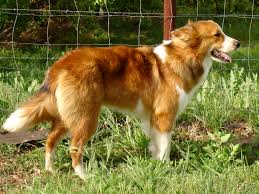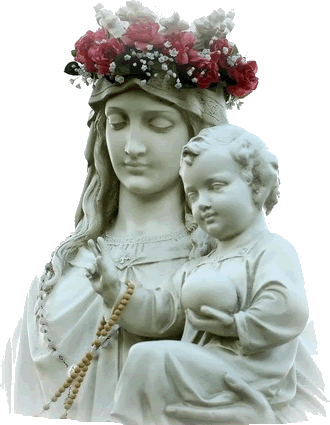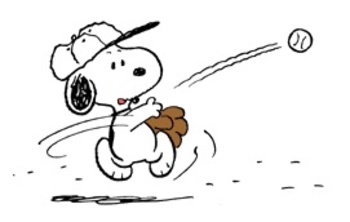My daughter Emilia is in the first grade this year and has been learning to read. She was frustrated in the beginning but the more she learned and the more confidence she got in reading, the faster her progress became.
I can't say for certain what got her over 'the hump' of her early frustrations, what it was that kept her going. However, I'd like to think that my wife and my reading regularly to our children from an early age contributed. Both our children love being read to and Emilia especially has always been good at remembering the stories we read to them. She seemed fascinated by the fact that Mommy and Daddy could decipher those black marks on the page into interesting stories.
It's a joy to listen to and watch (yes, watch) Emilia read. She runs her finger along the letters of new words and sounds them out and then moves on to the next word. She's become pretty quick at this too. It's also a joy to see how learning to read has opened up the world to her. Over and over again I've witnessed her satisfaction when she's read and understood words on signs, food packaging, book covers, in store displays, etc. There's a small library in the grade school here and Emilia is a regular visitor. Last week she came home with about 12 books, which I think is the maximum the students are allowed. And, she reads them - to herself, to her brother Adam, even to her teddy bear.
 |
| DOG |
Much has been written about human language, specifically the phenomenon of a person uttering verbal sounds or writing symbols that a listener or reader understands as referring to particular things in the real world. Let's take the word
dog for instance. How is it that the sound of the spoken word
dog and the squiggly marks that form the shapes of the letters D, O and G signify a four-legged furry animal with a tail that wags and a tongue that hangs out in hot weather? And then there's the same question about those words
four, leg, fur, animal, tail, wag, tongue, etc. And that's English. The creature we call
dog in English goes by
pies (Polish),
chien (French),
hund (German),
perro (Spanish) and hundreds of other designations around the world.
Of course animals communicate in various ways: dogs, bees, apes and whales immediately come to mind. But I think only the seriously unreflective person would fail to recognize that human language is unique. Nothing in the animal world comes close to the complexity and beauty of human language.
Human language is a clue to our divine origins. The book of Genesis explains that "In the beginning . . . God said . . ." God spoke the universe into being. Saint John's Gospel begins with a brief recapitulation of Genesis in the light of the Incarnation of Christ: "In the beginning was the Word, and the Word was with God, and the Word was God. He was in the beginning with God. All things came to be through him, and without him nothing came to be."
For a better explanation of how human language shows that we were created in the image of God, I recommend the book
The Message in the Bottle: How Queer Man Is, How Queer Language Is, and What One Has to Do with the Other by Walker Percy. Percy was an American novelist from Louisiana. Any good American library will either have
The Message in the Bottle on hand or available through inter-library loan. Percy's novels are worth reading too.
Adam naming the animals
(notice the divide between him and the animals)
Writing
I once had dreams of being a professional writer. Because I was an avid reader, I had a better than average vocabulary at school and my teachers told me I wrote well. That fed my vanity and eventually led to the ridiculous dream of writing for a living. It wasn't meant to be, of course, but the itch to write remains.
It's not bragging to say I am a fairly decent poet. A handful of my poems have been published. Someone once gave the good advice that a writer, after finishing some piece of writing, should hide it away for at least 6 months and then look at it again. Then the truth will show. If the piece of writing is good, the writer will know it. If it's bad, that too will be obvious. I'm gratified to say that a couple dozen poems I wrote many years ago are still a pleasure for me to read.
These days the writing that pleases me most is what I write for and with my kids. I've written a poem for each of my children's birthdays, including the day they were born. In recent years the birthday poems I've written are little stories set to rhyming verse which I then illustrated. Emilia and Adam like them very much and from time to time they ask me to re-read them. Emilia and I have even collaborated on a couple of silly little stories. She suggests ideas for the story, which I write, while she does most of the illustrating. Then we put it all together into a little book. The kids insist on keeping these little booklets with their other books on their bookshelf.
Arithmetic
Margaret Thatcher used to remark that she learned the essentials of economics by keeping the books for her father's grocery store in Grantham, England. If only the current occupant of the White House and many current and former members of Congress had a similar background! Mrs. Thatcher was one of those rare politicians that combined strong character and will, clear thinking and speaking, and a correct economic philosophy. I was blessed to grow up at a time when Ronald Reagan was the US President, Margaret Thatcher was the British Prime Minister and Karol Wojtyła was the pope (John Paul II). God gave the world far more than it deserved by raising those 3 individuals to positions of political and moral leadership at a time when the world seriously needed them. Since then, only the Catholic Church has kept up her end with firm moral leadership under popes Benedict XVI and now Francis.
God bless you, Lady Thatcher. Rest in peace with our Lord Jesus Christ.












